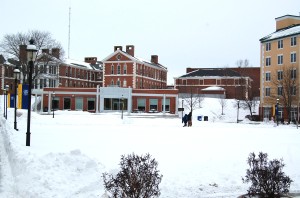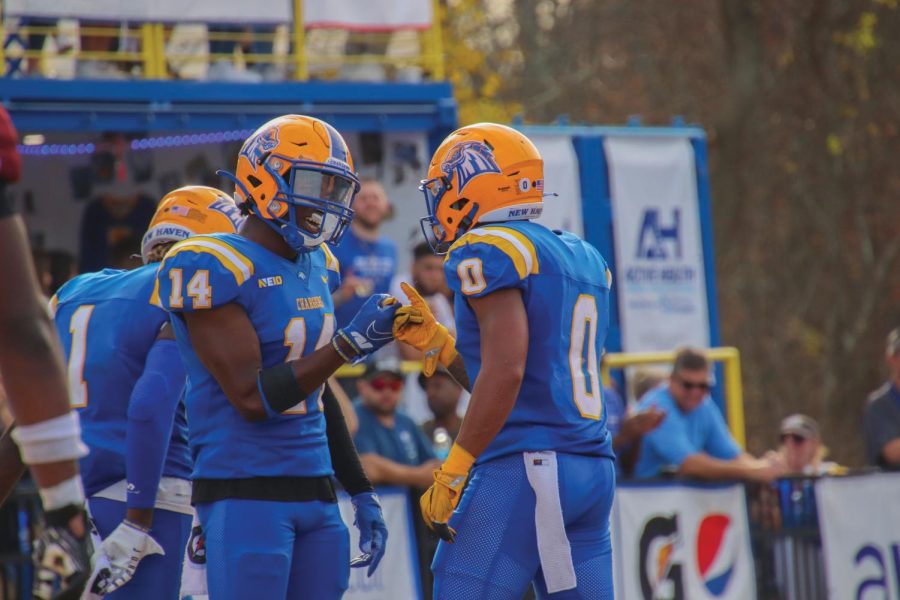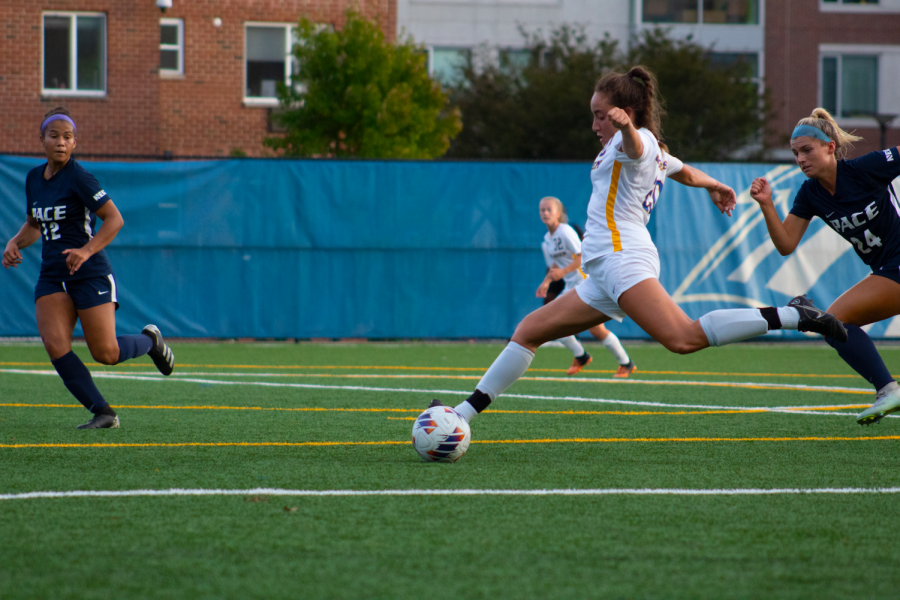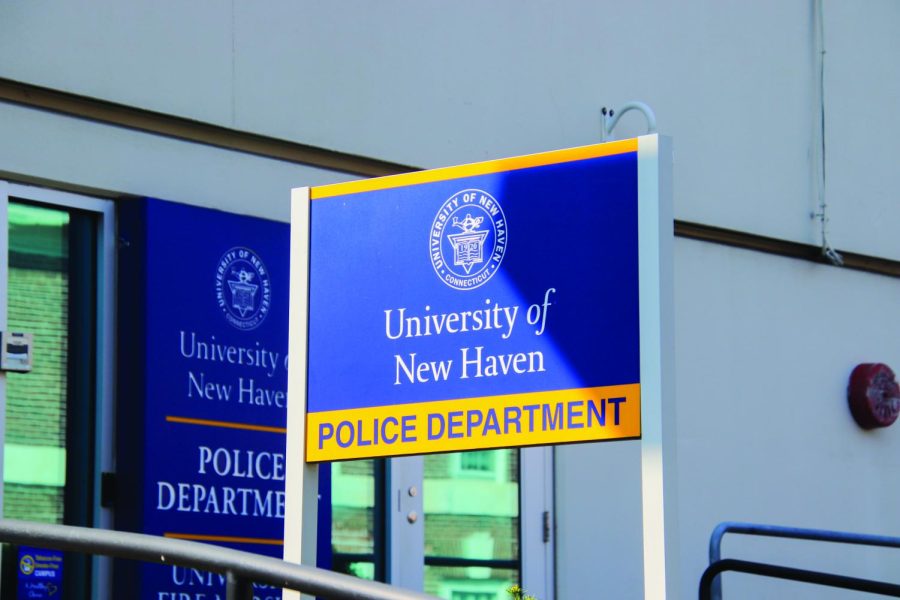Due to several storms disproportionally cancelling classes on Mondays, some have yet to meet this semester. Because of this, Thursday, Feb. 26 will act as a Monday in an attempt to restore balance between classes.

This rescheduling includes all classes that regularly meet on Mondays. This means that on Feb. 26, all Thursday day and evening classes will be suspended and a Monday class schedule instituted with all times and rooms assigned as if it were a Monday. This switch applies to only the West Haven and Orange campuses.
The snow additionally affected a Tuesday, a Wednesday morning and a Saturday; however it has disproportionally affected Mondays for the last three weeks in a row. Over 450 classes meet on Mondays. This includes those that also meet on Wednesdays, or both Wednesday and Fridays. However, of that, about one third meets on only Mondays. As a result, roughly 140 classes that haven’t met yet at all. With about 1,400 class sections this semester that means that ten percent haven’t met.
“There are not a lot of make up opportunities,” explained Daniel May, provost and senior vice president for academic affairs. “We teach a lot of weekend courses – can’t use those; and we can’t extend the semester.”
In total, three Mondays in a row have been affected. May explained that Mondays are generally a “high no-show” days because many holidays also fall on Mondays, and for those classes that meet Monday, Wednesday and Friday, they get hit with Friday holidays as well.
The decision to reschedule was made “mainly to catch up,” said May. When asked how faculty reacted to this decision, he said he thought they understood and that they wanted to help out their colleagues.
“It’s a challenge. We understand not everyone will be able to do it,” said May. “We hope we can get 80 percent of classes to meet on that Thursday.”
If classes cannot rearrange to meet on Thursday, Feb 26, it is encouraged that they try to meet on a Saturday and work around other classes.
“It’s hard for everyone to rearrange,” said May.
The decision to cancel classes on Monday, Jan. 26, Feb. 2 and Feb. 9 was made by Ronald Quagliani, associate vice president of public safety and administrative services; Carol Koziatek, vice president of human resources; and May.
“No one minds missing a day or two, but when it piles up, parents and students start to question ‘what am I paying for?’” said May.
Of the 6,800 undergrad and graduate students, there are about 2,800 on-campus students, so when making the decision of whether to cancel or not, they had to weigh that number against the number of off-campus students, and when storms hit the University of New Haven campus, they have an impact, explained May who noted the surrounding hills and lack of good roads and campus access.
According to Quagliani, the cancellation, delay or early dismissal of classes are based on a blending of the following criteria:
•Review of storm forecasts and radar tracking supplied by NOAA (National Oceanic and Atmospheric Administration), Connecticut Department of Emergency Management and other private and public domain modeling.
•Consultation with State and local officials to determine roadway conditions
•Consultation with UNH Police
•Consultation with the UNH Director of Facilities to determine campus conditions or time duration needed to have the campus ready to conduct business
•Consultation with area colleges with a commuter component to foster a “unified” message when possible
•Consultation with the Provost’s Office to determine the most appropriate time to order such delay or early dismissal based on class scheduling for minimized disruption while focusing on student and staff safety
•Consultation with the Campus Shuttle provider to determine effect on shuttle service
•Consultation with City of West Haven Public Works to determine condition of surrounding roadways and transit routes.
While Quagliani works with May and Koziatek, public safety has final decision based on evaluating various conditions. Previous cancelations or delays do not affect the need for future cancelations and each circumstance is handled separately and distinctly. There is also no limit to how many cancellations or delays that can happen each year.
“Public Safety’s responsibility is to ensure campus safety. If a weather cancellation, delay, or early release is deemed necessary for safety reasons, then all other activities are impacted until the campus is made safe and reopened,” said Quagliani, in regards to the impact the weather has on the campus community. “We work hard to restore residential student services as quickly as possible including food service, recreation center, library and transportation.”
The Facilities department handles snow plowing and removal operations in coordination with campus police to relocate vehicles in order to plow lots. Commuter lots are cleared first so residential students have a clear lot to temporarily move their vehicle while the residential lots are cleared.
“When a major storm is predicted we will clear campus before the storm arrives such as what occurred with the Jan. 26 (11 inches) and Feb.2 (11 inches) storms,” said Quagliani. However, “when a minor storm is predicted and performs as forecasted, and we are able to maintain campus safety and continue with normal operations then we operate regularly. This is what occurred with the storms on Jan. 30 when we received two inches of snow with light intensity and on Feb. 12 when we received a dusting.”
Quagliani explained the hardest storms to deal with are those that arrive during the regular business day. Since the storm hasn’t begun at the start of the class day, the decision relies solely on forecasting models on not only how much snow will fall but at what intensity it will fall at.
“This is important to determine whether snow clearing operations can outpace the snow falling,” said Quagliani.
However, when the storm outperforms the forecast and campus conditions deteriorate to a point where snow clearing operations cannot keep up then a quick decision to close campus is made due to safety concerns which is what occurred on Feb 9. when the campus experience three inches of snow at a high intensity.
In regards to future snowfall, Quagliani said, “unfortunately I don’t think we are not done yet.”
The decision to reschedule Monday classes on Thursday, Feb. 26, was made by May along with Gordon Simerson, associate provost for undergraduate Studies, assessment and accreditation, and all four colleges’ Deans and Associate Deans.
Simerson works with a group of administrators responsible for academic scheduling. This group includes all associate deans of the four colleges, the registrar, and the director of the first year success center.
Simerson explained that there were other options of “where to find another Monday,” however none seemed as effective or efficient.
Other options included: shortening Spring Break, which would complicate people’s vacations; eliminating Reading Day, which is much more disruptive since students would have no transition from their last day of classes to their first final exam; and lengthening the term, which conflicts with the spring graduate trimester and scheduling of undergraduate commencement and beginning of Summer I term.
As a result, Thursday was chosen to swap with because they have been untouched and a Wednesday swap wouldn’t accomplish much.
“We are doing the best we can to find the best solution on a system-wide basis,” said Simerson.
Simerson explained that getting support of swapping a Thursday for a Monday wasn’t hard and Feb. 26 was chosen to give some lead time to get the word out, and because it falls before midterms and Spring Break.
Another initiative that May, with the help of Lisa Scranton and Louis Franco, are suggesting is that professors “winterize” their courses. There will be more sessions of “Winterize Your Course” held for faculty and staff to learn how to cover class meetings cancelled by weather using blackboard and other technology.
“Winterize Your Course” explains how to utilize discussions in Blackboard and Lecture Capture with Tegrity, in an attempt to keep professors in touch with their students and up to date with course work.
“Hopefully we can do more in the future,” said May in regards to teaching professors how to “winterize” their courses.
“We are trying to recover,” said May. “Monday-Wednesday is the busiest day, so it largely impacted the campus, so we’re trying to balance, and labs are pretty crowded and classrooms are generally full. [there is] no buffer space to move students around.”
















